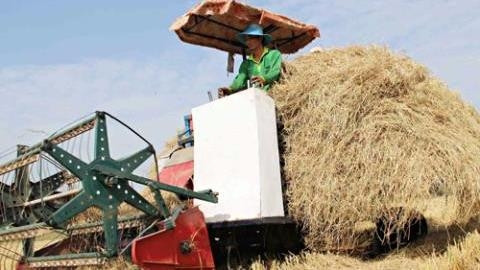Accordingly, the J-BIX pledges to provide financial aid through the Japanese Government’s official development assistance (ODA) for developing cattle raising at Song Hau farm.
It is expected that in the winter-spring crop 2015-2016, the State-owned Song Hau Farm will ship the first batches of straw to Japan. The straw will be used to make cattle feed and traditional Japanese tatami mats.
J-BIX’s decision to choose Vietnam, one of the world's top rice exporters, as a straw supplier is expected to open up a new direction for agricultural development. With a total of 30 million hectares of cultivated land with two or three crops of rice each year, Vietnam is truely home to straw.
And with only a small amount of straw collected for export processing, there will be more jobs being created for local farmers, contributing to increasing foreign currency revenues for relevant localities.
If straw becomes a valuable item, farmers will be prompted to quit burning and burying straw after harvests which cause organic poisoning and environmental pollution.
It is expected that the first tonnes of straw (which used to be considered agricultural residue) will be soon exported and open up a massive opportunity for the farm and other provinces in the Mekong Delta to further take advantage of their agricultural potential.
















